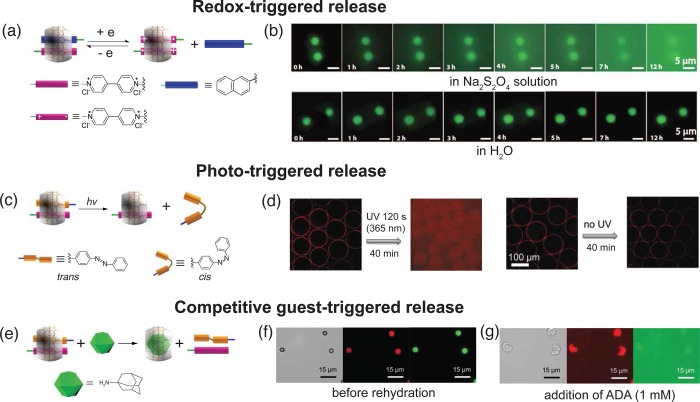Figure 6.
(a) Schematic representation of preferential formation of the ternary complexation of two MV+· with CB[8] over the CB[8]·MV2+·naphthol complexes in the presence of a reducing agent. (b) Fluorescence micrographs of the disintegration process of the microcapsule wall material in Na2S2O4 solution or H2O over 12 h. (c) Ultraviolet-light-driven photoisomerization of azobenzene moiety can be used to disassemble the heteroternary supramolecular complexes between MV2+, azobenzene, and CB[8], resulting in the release of the entrapped cargo from the microcapsules. (d) Fluorescence micrographs of the release of the molecular cargo from microcapsules with and without initial ultraviolet irradiation. (e) Schematic disassembly of the ternary complexes of MV, azobenzene, and CB[8], in the presence of competitive guest, 1-adamantylamine. Optical and fluorescent micrographs of dual cargo-loaded (Nile Red and 500 kDa FITC-dextran) microcapsules (f) before and (g) after hydration for 3 min in 1-adamantylamine solution (1 mM). Adapted with permission from ref (24). Copyright 2014 Nature Publishing Group.

